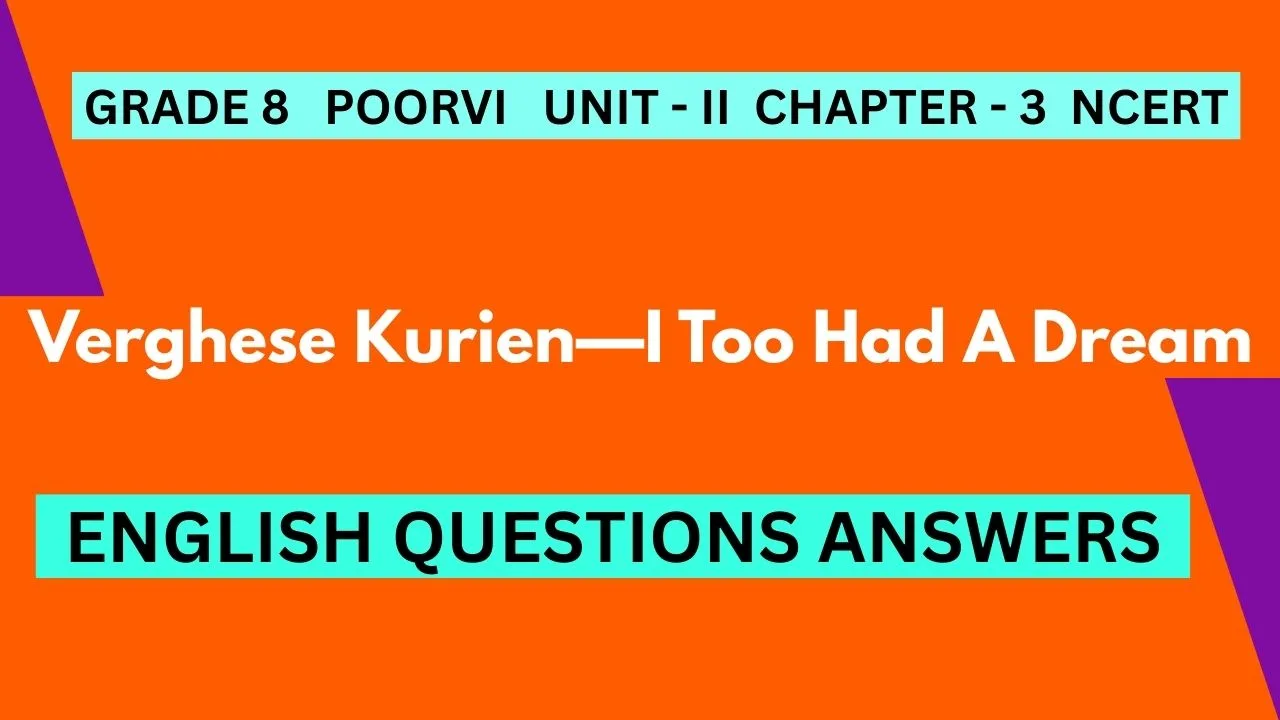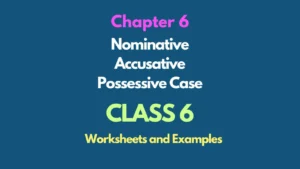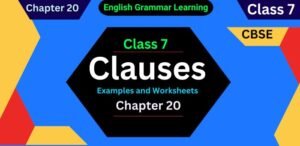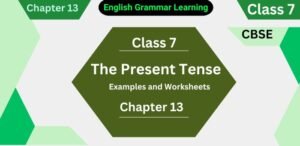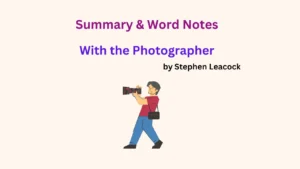Verghese Kurien I Too Had A Dream Questions Answers NCERT English Class 8 by POORVI provides detailed solutions to help students grasp the life and vision of Dr. Kurien. UNIT II Chapter 3 English 2025-2026 focuses on comprehension, values, and critical thinking. These answers assist learners in understanding the text deeply and preparing well for exams.
Let us do these activities before we read. (Page 82)
I Arrange the worldwide means of communication given below in the timeline provided. Share your answers with your classmates and teacher.
Answer:
- Carrier pigeons
- Postcard
- Telegraph
- Telephone
- Mobile phone
II Work in pairs and discuss the following things. Share your answers with your classmates and teacher. (Page 82)
1. The reasons for change in the means of communication over the years.
2. The means of communication that you prefer to use and the reason for your choice.
3. Communication through social media: its benefits and precautions that one should take against its misuse.
Answers:
1. Reasons for change in the means of communication over the years
- New technology has made communication faster and easier.
- People need to share information instantly.
- Invention of mobile phones, the internet, and satellites.
- Cheaper and more convenient methods are now available.
POORVI: Textbook of English for Grade 8 NCERT Solution 2025-2026:
2. Means of communication I prefer and why
- I prefer messaging apps like WhatsApp.
- They are fast, easy, and can send text, pictures, videos, and voice notes.
- I can communicate with people anywhere in the world instantly.
3. Communication through social media – benefits and precautions
Benefits:
- Connects people across the world.
- Helps share ideas and information quickly.
- Good for learning, entertainment, and business promotion.
Precautions:
- Don’t share personal details with strangers.
- Avoid posting false or harmful information.
- Be respectful and think before sharing anything.
Summary:
In 2005, Dr. Verghese Kurien wrote a heartfelt letter to his grandson Siddharth. He began by saying that in today’s fast-paced world people rely on instant communication, like telephones, which give fleeting joy. He felt that writing, even letters, is different because it can be treasured and re-read for years with pleasure. He hoped Siddharth would read the letter again in the future and understand his life choices.
Dr. Kurien shared that he started working soon after India’s independence. The noblest aim then was to build a nation free from hunger and poverty, where people lived with respect and love for one another. He realised that choosing one kind of life meant giving up other options. He decided to work for a small cooperative of dairy farmers in Anand, Gujarat.
Serving farmers was not his planned career. He could have been a metallurgist, an army officer, or a successful NRI, but he chose Anand because he felt he could contribute more meaningfully. His wife supported his choice despite the lack of comforts, giving him strength to carry his responsibilities with poise.
Kurien emphasised that his work was possible because of values like integrity, inherited from his parents and mentor, Tribhuvandas Patel. He believed life is a privilege and should not be wasted One must use talents, take responsibility, and contribute to the common good in daily life. He explained that failure means not giving one’s best, not just lacking success.
He recalled the 1999 ceremony when he received the Padma Vibhushan. He told Siddharth the medal was his too, but he must earn his own rewards.
Finally, Kurien advised loving bravely, rejoicing in others’ happiness, and working for the good of the country and humanity. Such rewards, he said, are the true rewards for a life well-spent.
Word Notes:
- Fast-paced : Quick-moving : तेज़-रफ़्तार
- Addicted : Dependent : आदी
- Fleeting : Short-lived : क्षणिक
- Concerns : Worries : चिंताएँ
- Treasure : Value greatly : ख़ज़ाना / संजोना
- Pursue : Follow : पीछा करना / अपनाना
- Valuable : Precious : मूल्यवान
- Glimpse : Brief view : झलक
- Noblest : Most honorable : सबसे श्रेष्ठ
- Poverty : Lack of money : गरीबी
- Humility : Modesty : विनम्रता
- Transformation : Change : परिवर्तन
- Cooperative : Group working together : सहकारी संस्था
- Envisioned : Imagined : कल्पना की
- Opted : Chose : चुना
- Meaningful : Significant : सार्थक
- Ardently : Passionately : उत्साहपूर्वक
- Everlasting : Never-ending : चिरस्थायी
- Recognition : Acknowledgement : पहचान
- Integrity : Honesty : ईमानदारी
- Privilege : Special right : विशेष अधिकार
- Responsibility : Duty : ज़िम्मेदारी
- Modestly : Humbly : विनम्रतापूर्वक
- Circumstances : Conditions : परिस्थितियाँ
- Perfection : Flawlessness : पूर्णता
- Cherish : Value deeply : संजोना
- Innocently : Without guilt : मासूमियत से
- Satisfied : Content : संतुष्ट
- Rejoice : Feel happiness : हर्षित होना
- Humanity : Mankind : मानवता
Let us discuss (Page 85)
A fact is something that can be proven true or false. A fact is not based on people’s beliefs. An opinion on the other hand is a belief, feeling or judgement, and can vary from one person to another. An opinion cannot be proven.
I Identify which of the following statements are facts and which are opinions. Share your answers with your classmates and teacher.
Answers:
1. But speaking on the telephone only gives us an immediate but fleeting joy – This is an opinion because it expresses a personal feeling.
2. I started my working life soon after our country became independent – This is a fact because it can be proven true.
3. To be quite honest, service to our nation’s farmers was not the career I had envisioned for myself – This is a fact as it tells the truth about his career plans.
4. I knew I could make a more meaningful contribution by working here in Anand, Gujarat – This is an opinion because it reflects his personal belief.
5. … values that I saw in my mentor and supporter here in Anand—Tribhuvandas Patel – This is a fact because it states what he actually observed.
6. Life is a privilege, and to waste it would be wrong – This is an opinion because it is a moral judgement.
7. I hope that you, too, will discover, as I did, that failure is not about not succeeding – This is an opinion because it gives his personal idea of failure.
8. … the magnificent ceremony in which the President awarded me the Padma Vibhushan in 1999? – This is a fact because it describes a real event.
II Answer the following questions (Page 88)
1. What event does Dr. Kurien refer to when he mentions receiving the Padma Vibhushan?
Ans: Dr. Kurien refers to the magnificent ceremony in Delhi in 1999 where the President awarded him the Padma Vibhushan. With great pride, his grandson slipped the medal around his neck, looked at it in awe, and asked if he could keep it. Dr. Kurien and his grandmother told him it was his as much as theirs but urged him to earn his own reward.
2. How did Dr. Kurien’s decision to join the cooperative in Anand affect his life?
Ans: Joining the small cooperative of dairy farmers in Anand transformed Dr. Kurien’s life. Although service to the nation’s farmers was not the career he had envisioned, a series of events placed him in that role. He chose it over careers in metallurgy, the army, or abroad, realising he could make a more meaningful contribution to building a nation free from hunger and poverty with equal respect for all.
3. Dr. Kurien’s decision to work in Anand reveals his values and sense of duty. Explain.
Ans: Dr. Kurien’s choice to work in Anand shows integrity, humility, and dedication to the common good. He put aside personal ambitions for positions of power or wealth, opting instead to serve farmers. His values—honesty to oneself, responsibility, and contributing to society—came from his parents, elders, and mentor Tribhuvandas Patel. This decision reflected his belief in using his talents to build the India of our dreams.
4. Why did Dr. Kurien write the letter to his grandson?
Ans: Dr. Kurien wrote to give Siddharth a deeper understanding of what he had done and why he pursued a life of service to farmers. He hoped his grandson would discover valuable reminders of the days before the twenty-first century and be inspired to work for the larger good of the country and humanity, earning rewards through his own lifetime contributions rather than merely keeping inherited honours.
5. According to Dr. Kurien “life is a privilege and it is wrong to waste it”. What is your opinion on this?
Ans: Life being a privilege means each person must accept responsibility, use their talents to the best of their ability, and contribute to the common good. Wasting life by not putting in one’s best effort or avoiding contribution is wrong. Opportunities for helping others appear daily—whether for a friend, a teacher, or the community—and making even modest contributions fulfils the purpose of living this privilege.
6. What message does Dr. Kurien want to convey about selfless service and its long-term impact on the society?
Ans: Dr. Kurien conveys that selfless service, guided by integrity and responsibility, brings true rewards. By dedicating oneself to the larger good, one impacts society far beyond personal gain. His own work for farmers shows that even modest contributions help build a nation where people live with equal respect, free from hunger and poverty. Such service leaves lasting benefits for future generations and earns genuine recognition.
Let us think and reflect (Page 86)
I Read the given extracts and answer the questions that follow.
1. In today’s fast-paced world we have become so addicted to instant communication that we prefer to use a telephone. But speaking on the telephone only gives us an immediate but fleeting joy. Writing is different. Writing—even if it is a letter—not only conveys our present concerns and views of the events taking place around us but it becomes a possession that can be treasured and re-read over the years, with great, abiding pleasure.
(i) Fill in the blank given below by selecting the correct option from the brackets.
When the writer refers to a ‘fast-paced world’, he is speaking of a world where _________________. (communication happens quickly but lacks depth/people have more time to write and reflect)
(ii) Select the option that applies correctly to both Assertion (A) and Reason (R).
(A): Writing letters can be treasured and re-read over the years.
(R): Speaking on the telephone provides long lasting joy.
A. Both (A) and (R) are true, and (R) is the correct explanation of (A).
B. Both (A) and (R) are true, but (R) is not the correct explanation of (A).
C. (A) is true, but (R) is false.
D. Both (A) and (R) are false.
(iii) Identify whether the statement given below is true or false.
The writer feels that letter-writing is a class apart from other kinds of writing.
(iv) Which of the following is the most appropriate title for the given extract?
A. The Rise of Instant Communication
B. The Fleeting Delight of Phone Calls
C. The Lasting Joy of Written Words
D. Living in a Fast-paced World
Answers:
(i) When the writer refers to a ‘fast-paced world’, he is speaking of a world where communication happens quickly but lacks depth.
(ii) Correct option: C. (A) is true, but (R) is false.
(iii) True – The writer does feel that letter-writing is a class apart because it can be treasured and re-read over the years.
(iv) Most appropriate title: The Lasting Joy of Written Words.
2. Your grandmother too made an important choice. She knew, in those early days, life in Anand could not offer even the simple comforts that we take for granted today. However, she ardently supported my choice to live and work in Anand. That choice of your grandmother to stand by me has given me an everlasting strength, always ensuring that I shouldered my responsibilities with poise.
(i) How can we say that the grandmother shared her husband’s dedication to a greater cause?
(ii) Complete the following with the correct option from the two given in brackets.
The fact that the writer (grandfather) praises his wife tells us that he _____________________ (truly values/quietly accepts) her role in his life.
(iii) Complete the following sentence with the correct option from those given below.
Based on the information in the extract, we can infer that the grandmother had all of the following traits EXCEPT ____________.
A. encouraging
B. understanding
C. comforting
D. thoughtful
(iv) Select the phrase that conveys— ‘showed grace under pressure and carried out my duties with dignity and confidence’.
Answers:
(i) We can say the grandmother shared her husband’s dedication because she ardently supported his choice to live and work in Anand, despite knowing life there could not offer even the simple comforts of that time.
(ii) The fact that the writer praises his wife tells us that he truly values her role in his life.
(iii) Based on the extract, the grandmother had all of the traits except comforting.
(iv) The phrase is “shouldered my responsibilities with poise.”
II Answer the following questions.
1. What event does Dr. Kurien refer to when he mentions receiving the Padma Vibhushan?
Ans: Dr. Kurien refers to the magnificent ceremony in Delhi in 1999 where the President awarded him the Padma Vibhushan. His grandson slipped the medal around his neck, looked at it in awe, and asked if he could keep it. Kurien and his wife told him it was his as much as theirs but advised him not to be satisfied with keeping it and to earn his own reward.
2. How did Dr. Kurien’s decision to join the cooperative in Anand affect his life?
Ans: Joining the cooperative of dairy farmers in Anand changed Dr. Kurien’s life. Serving farmers was not the career he had planned, but events placed him there. He gave up other career options because he felt he could make a meaningful contribution. The work brought him closer to the dream of building an India free from hunger and poverty, where people live with equal respect and love for one another.
3. Dr. Kurien’s decision to work in Anand reveals his values and sense of duty. Explain.
Ans: Dr. Kurien’s choice to work in Anand showed integrity, humility, and service. He gave up careers in metallurgy, the army, or abroad to work for farmers. He valued honesty to himself and contributing to the common good. He followed values from his parents, elders, and mentor Tribhuvandas Patel. This decision reflected his sense of responsibility and his wish to help build the India of our dreams.
4. Why did Dr. Kurien write the letter to his grandson?
Ans: Dr. Kurien wrote the letter so his grandson could understand his work and life choices. He wanted Siddharth to read it again in the future for a deeper understanding. He hoped to inspire him to work for the larger good of the country and humanity. He wanted to pass on lessons of honesty, responsibility, and service, which he believed were the true rewards in life.
5. According to Dr. Kurien “life is a privilege and it is wrong to waste it”. What is your opinion on this?
Ans: Life is a privilege, so we must accept responsibility and use our talents well. Wasting life by not trying our best is wrong. Opportunities to help others come every day—a friend needing help, a teacher looking for a volunteer, or a community task. Contributing, even in a small way, makes life meaningful. True failure is not putting in your best effort for the common good.
6. What message does Dr. Kurien want to convey about selfless service and its long-term impact on the society?
Ans: Dr. Kurien’s message is that selfless service benefits society for generations. Working for the larger good, with integrity and responsibility, brings true rewards. His own work for farmers helped improve lives and build the nation. Even modest contributions add to the common good. Recognition comes naturally when one works for others without selfish motives, and such rewards are the only true rewards for a life well-spent.
Let us learn (Page 88)
I. Replace the underlined words in each sentence with the correct synonym from the box. You may refer to a dictionary.
| essential, swift, lifelon,g momentar,y usefu,l splendid |
Answers:
1. He received the award in a splendid ceremony.
2. I felt a momentary joy when I received the appreciation for my song.
3. With today’s swift communication, we can share information across the world in seconds.
4. Our school focuses on the essential values—collaboration, innovation, and unity.
5. My teacher’s advice on time management is a useful reminder of the importance of planning.
6. Reading books and listening to music can give lifelong pleasure that will last forever.
II Match the expressions from the text in Column 1 with their meanings in Column 2.
Answers:
| Column 1 | Column 2 (Meaning) |
| 1. in all humility | (iv) being humble and having no feeling of self-importance |
| 2. hold their heads high | (vi) be confident and have a positive feeling |
| 3. to be quite honest | (i) to speak in a truthful way |
| 4. to the best of your ability | (ii) doing something using all your skills, talents, and knowledge |
| 5. looked at in awe | (iii) observed with great respect and wonder |
| 6. somewhere deep down | (v) in the innermost part of the self |
III Make as many words as you can out of the following words. One example has been done for you.
Answers:
1. community – city, toy, tune, unity, mutiny, cot, coin, tiny, moon, count, nut, cut, not, my.
2. important – part, port, rain, main, trap, iron, top, aim, man, pan, art, rat, tan, tip, pint, train, trait, torn, pain.
3. magnificent – man, fan, can, cent, fine, mint, gain, gate, gift, fig, eat, tea, cat, net, mat, nice, face, fate, ten, mine.
4. satisfied – sit, sat, sad, side, date, fade, fast, fat, said, sift, tide, diet, fit, safe, aid, tie, seat, fist, fate, side.
5. generation – gate, note, tone, rain, tear, rate, eat, tea, ear, tan, ran, one, net, rat, neat, gain, into, near, iron, root.
6. achievement – eat, tea, meat, met, hit, hem, came, cat, chat, vent, hat, mat, net, neat, team, act, ten, even, hem, mint.
IV Let us play a word game—antakshari.
1. Write the synonym of the word according to the clues given below.
2. For example, the synonym of the first word, ‘IMPORTANT’ ends with the letter ‘T’. The synonym of the second word begins with ‘T’, ‘TROUBLE’. Then write the synonym of the third word starting with the letter ‘E’.
3. Now, continue with the word game.
| I | M | P | O | R | T | A | N | T | R | O | U | B | L | E | V | E | N |
| P | O | S | T | A | L | E | T | H | I | C | S | C | H | E | D | U | L |
| E | S | U | C | C | E | S | S | F | U | L | I | V | I | N | G |
(i) major (synonym)
(ii) problem (synonym)
(iii) uneven (antonym)
(iv) related to post office
(v) our moral duty
(vi) related to time
(vii) prosperous (synonym)
(viii) related to being alive
V Study the highlighted punctuation marks in the following sentences from the text.
Read the sentences below and insert either an em dash (—) or an en dash (–) suitably.
Answer:
1. The conference will be held from March 15–March 20.
2. I have lived in Kanpur–Raipur for five years now.
3. The artist—known for her vibrant paintings—will be showcasing her work in Guwahati.
4. The scores for the final match were 2–3.
5. My favourite snacks—samosas, pakoras, and jalebis—are all from India.
6. The train journey from Belagavi–Bengaluru takes less than ten hours.
7. I just finished reading the book—it was absolutely amazing!
8. The event will take place on September 1–September 5.
VI Study the highlighted words in the following sentences from the text.
Fill in the blanks by choosing the correct word from the options given in the brackets.
Answers:
1. Please remember to bring your assignment book.
2. The team celebrated their victory after the match.
3. It’s important to stay hydrated during the hot summer days.
4. I can’t believe you’re going to the mango festival today.
5. The students said they’re excited for the field trip tomorrow.
6. The tree lost its leaves in the winter.
VII Read the following phrases from the text.
Now, complete the following sentences with suitable prepositional phrases.
Answers:
1. The children played happily in the park near our house.
2. Nisha placed the vase on the wooden table in the living room.
3. We discussed the project in the meeting with our teacher.
4. Preethi found the lost book under the bed in her room.
5. The cat slept on the soft cushion by the window.
VIII Rearrange the following jumbled words and phrases into meaningful sentences.
Answers:
1. The dog barked loudly at the strangers walking by the house.
2. My classmate wrote a story during the summer vacations.
3. They enjoyed a picnic by the lake under the trees.
4. He hung the painting in his grandfather’s room.
5. The students studied for the exam with great determination.
Let us listen (Page 93)
I You will listen to the passage about Evelyn Glennie’s journey in overcoming her hearing loss through music and turning a physical disability into a success story. (Transcript for teacher on page 100) After listening, match the words given in Column 1 with their meanings given in Column 2.
Answers:
| Column 1 | Column 2 |
| percussionist | a person who plays drums and similar instruments |
| impaired | damaged or weakened |
| vibrations | physical sensations caused by sound |
| determination | the ability to keep going despite difficulties |
| gradual | slow and steady over time |
II Listen to the passage once again and state whether the statements given below are true or false
Answers:
1. Evelyn Glennie became deaf suddenly. → False
2. Her headmistress ignored the signs of her hearing loss. → False
3. Ron Forbes was a percussionist who helped Evelyn. → True
4. Evelyn used her skin and bones to sense music. → True
5. She gave up on music after her diagnosis. → False
III Answer the following questions in one or two words.
Answers:
1. By sensing music through vibrations
2. He trained her to feel music in her body
3. We should support, encourage, and believe in their abilities
Let us write (Page 95)
I Write a letter to your grandparents thanking them for the valuable lessons they have taught you. Include how their wisdom has shaped your values and behaviour in life.
1. Thank them for teaching you important lessons, sharing stories, or helping others in the neighbourhood.
2. Share how their actions inspire you to contribute to the betterment of the society.
Answer:
[Your Address]
[Date]
Dear Grandma and Grandpa,
I hope you are both happy and healthy. I am writing this letter to thank you for all the valuable lessons you have taught me. Your stories from the past, your kindness towards neighbours, and your patience in solving problems have taught me more than any book could.
I have learned from you the importance of honesty, hard work, and helping others without expecting anything in return. The way you help people in the neighbourhood, whether it is giving advice, sharing food, or offering comfort, inspires me every day.
Because of you, I have developed values like respect, empathy, and responsibility. I try to follow your example in my daily life—by being kind to others, sharing what I have, and working for the good of the community. I hope that, just like you, I can also make a positive difference in the lives of people around me.
Thank you for being my role models and for shaping the way I think and live. I am truly blessed to have you both in my life.
With love and respect,
[Your Name]
Let us explore (Page 96)
I The White Revolution led to a increase in milk production in India primarily due to the efforts of Dr. Verghese Kurien. Therefore, he is known as ‘the Milkman of India’. The Green Revolution in India introduced high-yielding varieties of wheat and rice. It was initiated by Dr. M.S. Swaminathan. He was awarded the Padma Shri in 1967, Padma Bhushan in 1972, Padma Vibushan in 1989, and Bharat Ratna in 2024. The Blue Revolution focused on
increasing fisheries production and led by Dr. Hiralal Chaudhuri. productivity in India. This initiative was In groups of four, research more information about these revolutions. Share your findings with your classmates and teacher.
Answer:
1. White Revolution – Milk Production
- Leader: Dr. Verghese Kurien (known as The Milkman of India).
- Time Period: Started in 1970 under the Operation Flood programme.
- Goal: Increase milk production and make India self-sufficient in dairy.
- Impact:
- India became the largest producer of milk in the world.
- Improved income for millions of rural dairy farmers.
- Created a strong network of dairy cooperatives like Amul.
2. Green Revolution – Food Grain Production
- Leader: Dr. M.S. Swaminathan (called Father of the Green Revolution in India).
- Time Period: Late 1960s to 1970s.
- Goal: Increase wheat and rice production to fight food shortages.
- Methods:
- Introduced high-yielding seeds.
- Used modern irrigation methods and chemical fertilizers.
- Impact:
- India became self-reliant in food grain production.
- Reduced dependence on imports.
- Awards: Padma Shri (1967), Padma Bhushan (1972), Padma Vibhushan (1989), Bharat Ratna (2024).
3. Blue Revolution – Fisheries & Aquaculture
- Leader: Dr. Hiralal Chaudhuri.
- Time Period: Started in 1970s.
- Goal: Increase fish production through modern techniques.
- Impact:
- Boosted inland and marine fish production.
- Improved livelihoods of fishing communities.
- Encouraged aquaculture (fish farming) for better productivity.
III Financial Literacy (Page 97)
Read the passage and discuss the questions given below.
Discuss in groups.
1. The importance of learning about money and saving from a young age
Ans: Learning about money early helps children make wise choices and avoid waste.
Example: If a child saves pocket money regularly, they can buy a useful item like a school bag without asking parents for extra money.
2. Imagine you received some money as a gift. How would you decide whether to save it, spend it, or invest it?
Ans: I would first think about my needs and wants. I would save most of it for future needs, spend a small part on something I enjoy, and consider investing a little in something that can grow in value, like a savings account.
3. If you were in charge of planning a small event at school with a limited budget, how would you manage the money?
Ans: I would make a list of all the things needed. Then I would compare prices, buy only the most important items, and avoid unnecessary expenses. I would keep some money aside for emergencies.
4. Why is financial literacy important for everyone?
Ans: Financial literacy helps people use money wisely, avoid debt, save for the future, and make good financial decisions in life.

